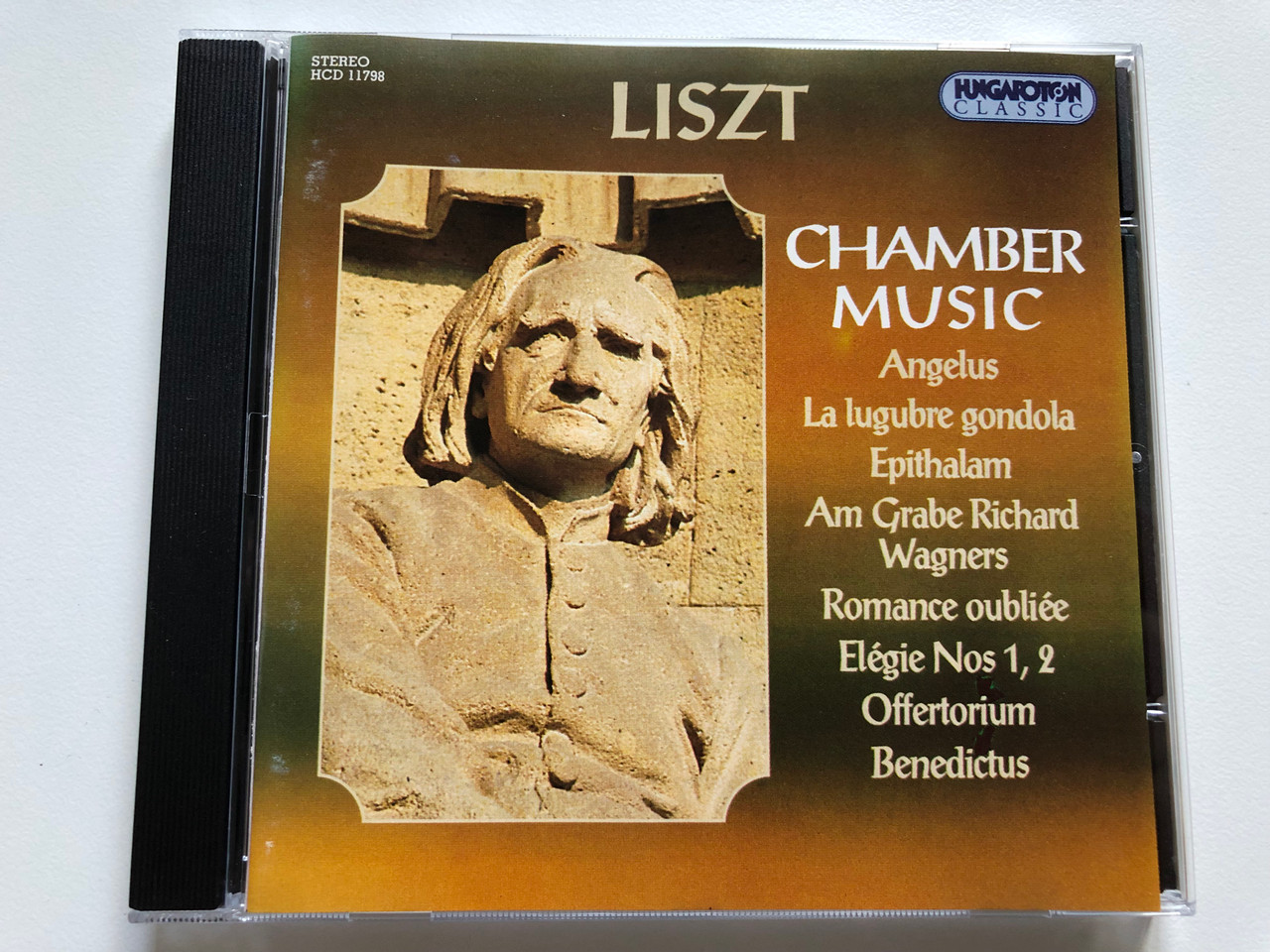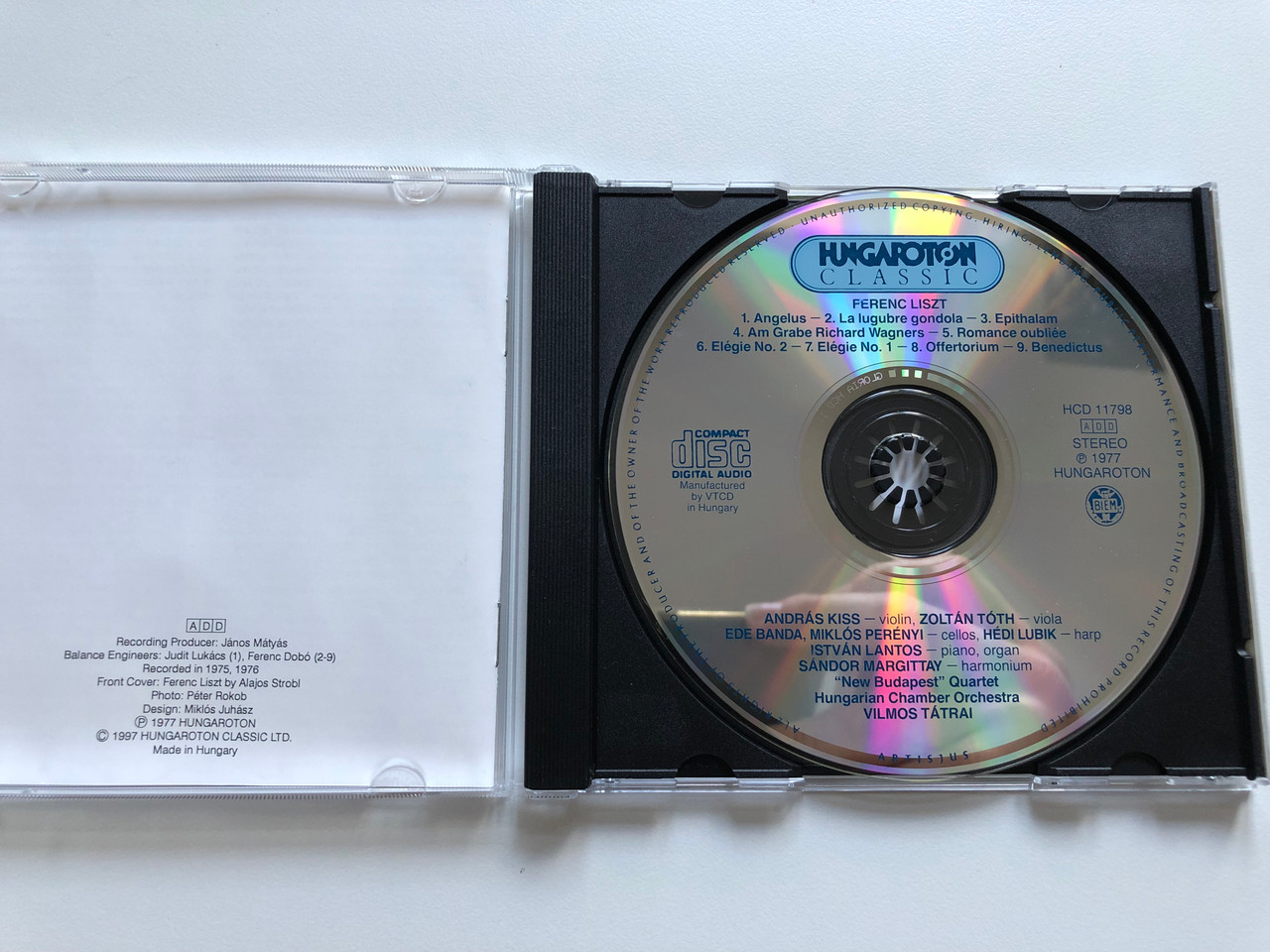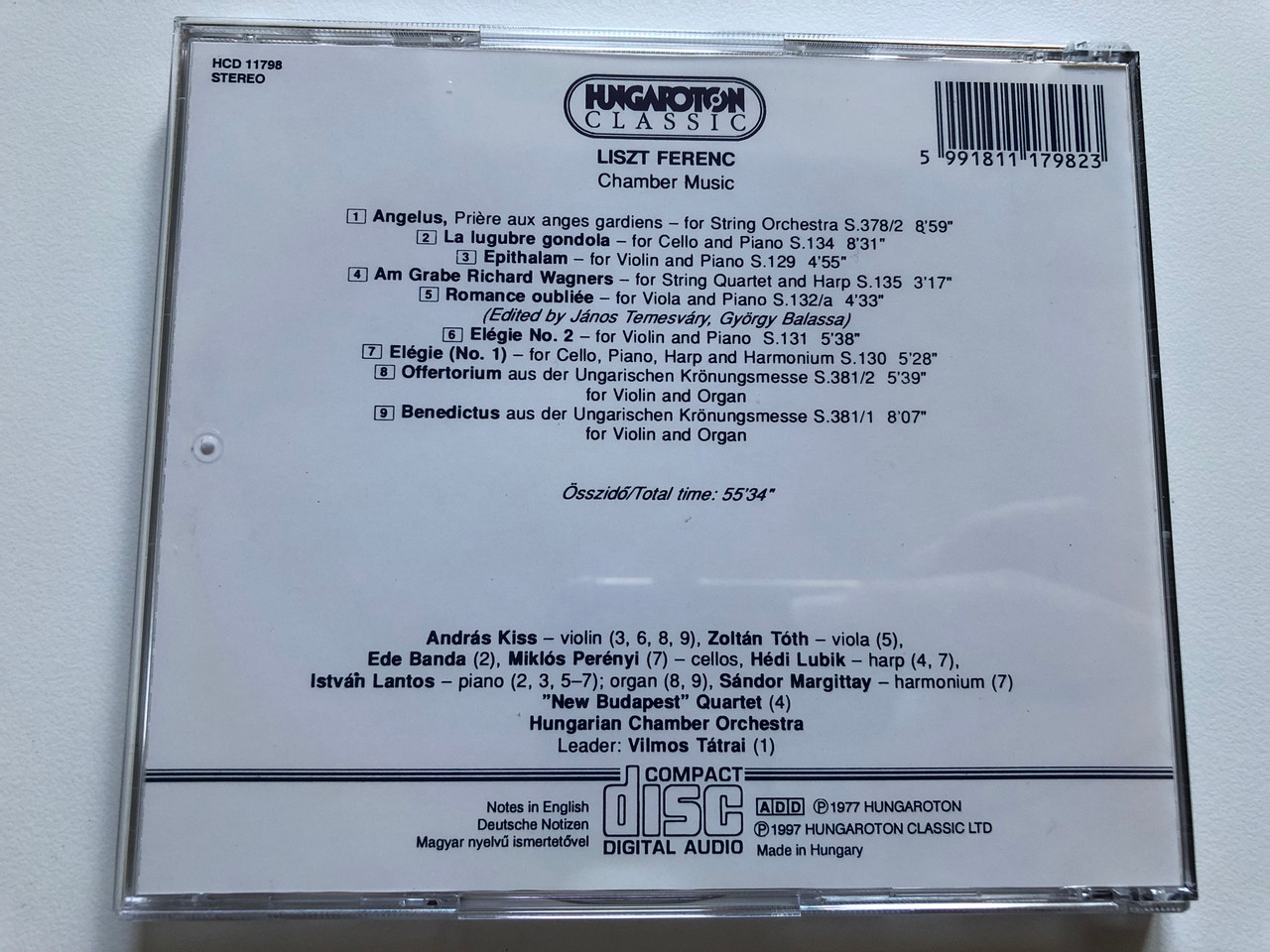Description
Liszt Ferenc – Chamber Music / Angelus; La Lugubre Gondola; Epithalam; Am Grabe Richard Wagners; Romance Oubliée; Elegie Nos 1, 2; Offertorium; Benedictus / Hungaroton Classic Audio CD 1997 Stereo / HCD 11798
UPC 5991811179823
Franz Liszt (22 October 1811 – 31 July 1886) was a Hungarian composer, pianist and teacher of the Romantic period.
Liszt gained renown during the early nineteenth century for his virtuoso skill as a pianist. He was a friend, musical promoter and benefactor to many composers of his time, including Frédéric Chopin, Charles-Valentin Alkan, Richard Wagner, Hector Berlioz, Robert Schumann, Clara Schumann, Camille Saint-Saëns, Edvard Grieg, Ole Bull, Joachim Raff, Mikhail Glinka, and Alexander Borodin.
A prolific composer, Liszt was one of the most prominent representatives of the New German School (German: Neudeutsche Schule). He left behind an extensive and diverse body of work that influenced his forward-looking contemporaries and anticipated 20th-century ideas and trends. Among Liszt's musical contributions were the symphonic poem, developing thematic transformation as part of his experiments in musical form, and radical innovations in harmony.
| Label: | Hungaroton Classic – HCD 11798 |
|---|---|
| Format: |
CD
|
| Country: | Hungary |
| Released: |
1997 |
| Genre: | Classical |
| Style: | Romantic |
Tracklist:
| 1 | Angelus! Priere Aux Anges Gardiens, - For String Orchestra S378 /2 |
8:59 | |
| 2 | La Lugubre Gondola For Cello & Piano, S134 | 8:31 | |
| 3 | Epithalam, S129 For Violin And Piano | 4:55 | |
| 4 | Am Grabe Richard Wagners - For String Quartet And Harp S135 | 3:17 | |
| 5 | Romance Oubliée, For Viola Und Piano, S. 132 /a | 4:33 | |
| 6 | Elegie No. 2 - For Violin And Piano S131 | 5:38 | |
| 7 | Elegie (No. 1) - For Cello, Piano, Harp And harmonium S130 | 5:28 | |
| 8 | Offertorium Aus Der Ungarischen Krönungsmesse S.381/2 | 5:39 | |
| 9 |
Benedictus Aus Der Ungarischen Krönungsmesse S.381/1 | 8:07 |
- Cello – Ede Banda (tracks: 2), Miklós Perényi (tracks: 7)
- Ensemble – New Budapest Quartet (tracks: 4)
- Harmonium – Sándor Margittay (tracks: 7)
- Harp – Hédyi Lubik (tracks: 4, 7)
- Orchestra – Hungarian Chamber Orchestra (tracks: 1)
- Organ – István Lantos (tracks: 8, 9)
- Piano – István Lantos (tracks: 2, 3, 5 to 7)
- Violin – András Kiss (tracks: 3, 6, 8, 9)
































